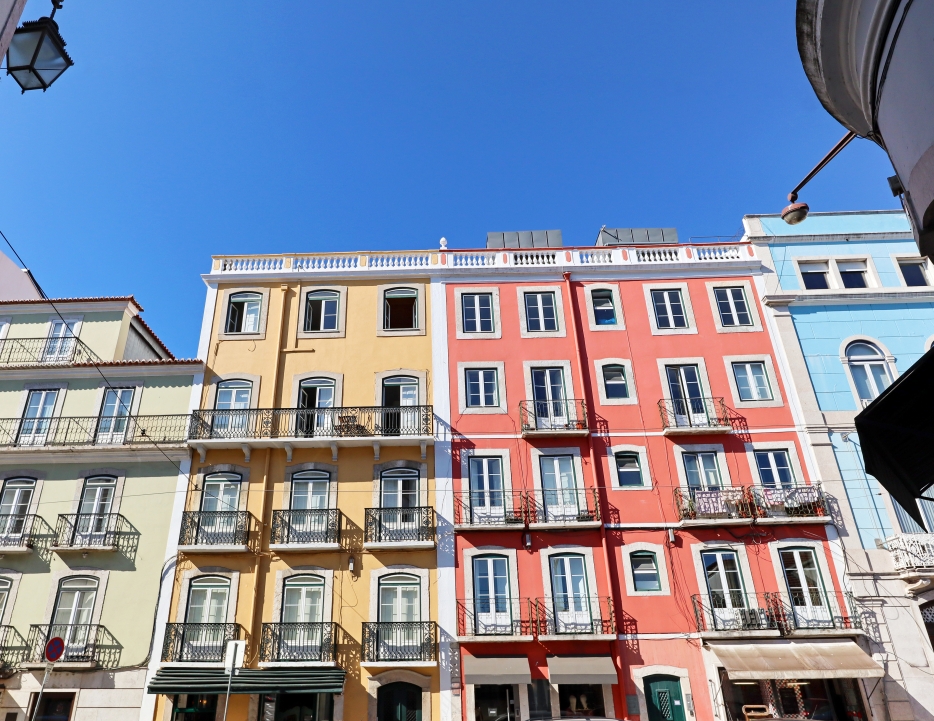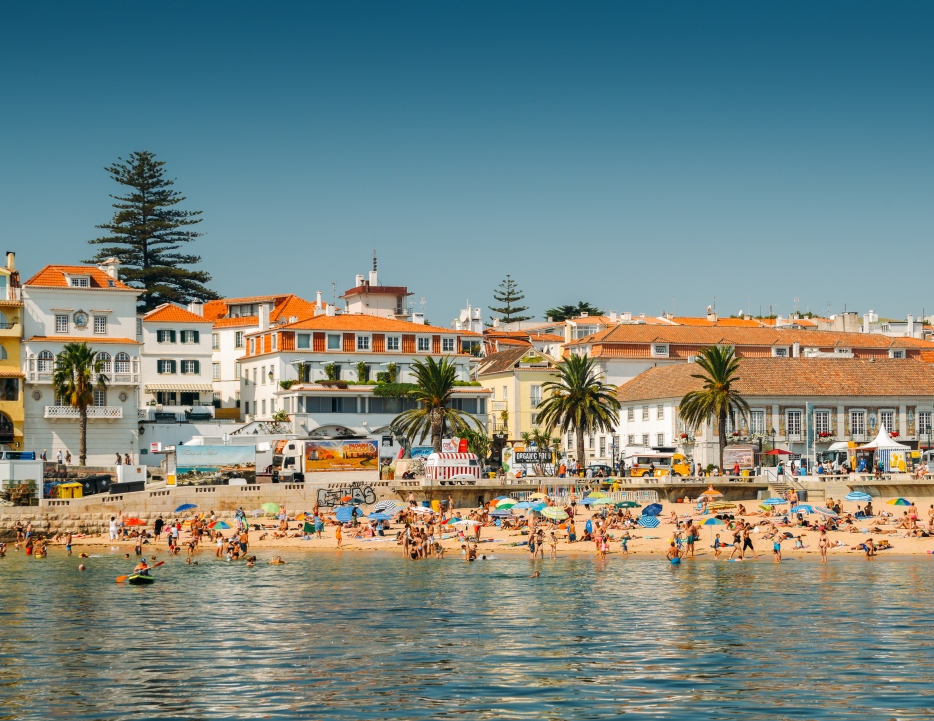Renting an Apartment in Lisbon: The Ultimate Guide
Lisbon has been a hot spot for expats for a while now. Many young professionals and investors choose the wonderful capital of Portugal as their destination of relocation due to its perfect weather, rich culture, great food, and safety.
If you’re in search of a destination that offers high quality of life and Lisbon is a predominant option for you, proceed to read this article that aims to give you the necessary information about renting an apartment in Lisbon.
Apartments for Rent in Lisbon
Finding a suitable apartment for rent can be a challenging task in Lisbon. Since the city is the capital of Portugal, rental prices are higher compared to other cities in the country. However, the price may vary according to the district and the length of the contract.
Being a foreigner also may impact the renting process because some leasers might not want to make long-term contracts with foreigners. Finding the best option might take a while, but you’ll eventually succeed if you research thoroughly and get well-informed. A little patience will definitely do you good, as well.

Pros and Cons of Renting an Apartment in Lisbon
Making a pros and cons list always gives you a head start in such processes. Here’s one that will ease your decision-making process:
━ Pros of Renting an Apartment in Lisbon:

Excellent and fair-priced public transportation

Best education facilities in the country

Lots of beautiful places around for weekend getaways such as Sintra and Cascais

Vivid nightlife

Offers the best job opportunities in the country

Great food and drinks

High life quality

Mild climate

Low cost of living
━ Cons of Renting an Apartment in Lisbon:

Gets a lot of tourists

Houses lack central heating and are poorly insulated

Most expensive city in the country
Costs of Apartment Rentals in Lisbon
Buying property in Alcochete will offer you a luxurious Portuguese lifestyle. Keep in consideration all the aspects of the real estate market before investing.
The rents vary in Lisbon according to the district, amenities, and size and type of the property. The prices can change depending on whether the lease you’re signing is short-term or long-term. Find below average costs of apartments according to their approximate sizes and numbers of rooms:
- A studio apartment that is approximately 20 m²: €650
- Single bedroom apartment that is approximately 50 m²: €800
- A two-bedroom apartment that is approximately 83 m²: €1,100
- A three-bedroom apartment that is approximately 120 m²: €2,000
The prices given above are figures estimated to provide a general idea; they’re not exact. Although you may come across pricier houses during your search, there’s also room for the surprise factor of finding a cheaper apartment.
Best Neighborhoods To Live in Lisbon
There are different characteristics to every neighborhood. Researching them before you move is crucial for where you live and your way of living to be compatible. The following are some of the best places to live in Lisbon:
Alfama
With its mesmerizing landscapes and beautiful narrow streets to wander among, Alfama is a great place to live for those who seek tranquility. This neighborhood is a perfect fit for those who like to get around on foot instead of driving because it’s founded on the top of a hill and its streets are pretty narrow.
Alfama’s population is a good mix of young professionals, families, and the elderly who have been living there for quite some time: meaning the neighborhood has something to offer for everyone of all age groups.

Baixa
Located right at the heart of the capital, Baixa is the old town of Lisbon. The town swarms with the historical heritage of the city. The buildings and streets of Baixa are fascinating.
Everything you need like cafes, restaurants, or grocery stores will be close by if you live in Baixa. There’s only one downside to these perks; the town gets crowded with both tourists and locals. However, if you like busy streets and vivid nightlife, that won’t be a problem for you at all.
Sintra
Sintra is a part of Greater Lisbon, approximately 27 kilometers from the capital. The town is a sight for sore eyes, and its mountainside has been listed as a World Heritage Site by UNESCO.
Sintra is a town located on the Portuguese Riviera full of pleasant landscapes, gardens, sunny beaches, and beautiful mansions and palaces. What’s even better about this beautiful place is that the apartments are generally affordable.
Cascais
Cascais is a town that is part of the Greater Lisbon in the Portuguese Riviera just like Sintra. However, it gets much more touristic action.
Cascais is famous for its golden beaches, fancy hotels, and gorgeous bays. The town used to be a fishermen’s village and still is the perfect destination for those who favor seafood. Apartments are a bit expensive, on the other hand, since Cascais is a wealthy town.

Principe Real
Principe Real may be one of the most culturally diverse spots in Lisbon. The neighborhood offers great food and drinks as well as a glance at the art scene with its many galleries.
Although the place swarms with restaurants and bars, it is still quite peaceful with its beautiful old buildings and greeneries.
Since it’s a neighborhood that’s very much in demand, houses in Principe Real are not so affordable compared to the other parts of central Lisbon.
Chiado
Chiado is a much-favored neighborhood, especially for the art-loving millennials. Overflowing with art events and the smell of freshly brewed coffee, the neighborhood is surrounded by historical sights, art museums, theaters, and cinemas.
Parque de Nações
Parque de Nações is the business district of Lisbon with its modern buildings and top-flight residence areas. As might be expected, the cost of living in the Parque de Nações district is not very low.
Finding an Apartment To Rent in Lisbon
It’s always in your best interest to start your search ahead. Since most rental properties are listed online, you can research thoroughly and find the right fit for your stay.
There are various websites where you can view apartments for rent in Lisbon. Airbnb, Imovirtual, Casa Sapo, and Idealista are some of these websites; checking through all of these sites will provide you with the chance to see different property types.
Tips for Renting an Apartment in Lisbon
First and foremost, you need to note that there’s specific parlance in Lisbon for apartments. Learning this parlance beforehand will simplify the process of searching for an apartment. Below are the apartment types that you’ll come across during your search most frequently:
- TO: These houses are like studio apartments where the bedroom, kitchen, and living room are all integrated.
- T1: These apartments have one bedroom and a living room that are separated.
- T2, T3, T4, T5: Numbers that follow the typology indicate the number of rooms in the apartment. These apartments are a better option for families.
- T1+1: This is a type of apartment that’s like a hybrid of T1 and T2. A T1+1 apartment has a bedroom, a living room, and an additional small room.
Now that you’re all set about the basic terminology, it’s time to get further tips for renting an apartment in Lisbon.

Get to know the neighborhoods of Lisbon before starting the apartment hunt. Choose the right fit for you by considering your needs and expectations. You can make a list that includes all your priorities such as proximity to schools, hospitals, cafes, restaurants, and beaches. Another thing to consider as you decide on the neighborhood you'll be moving to is whether you want it tranquil or more vivid.

There’s immense demand for rentals in Lisbon, so you should check the rental adverts very frequently and act quickly to arrange a viewing if you come across one you like.

Keep an eye out for scammers. Try not to transfer any money before you view the house. Getting help from professionals is always a good idea because it reduces the risk of being subjected to scams.

Study the rental contract thoroughly before signing the lease, paying attention to all the details.

Negotiate the rental price, it’s only natural in Portugal: The landlords have more tendency toward negotiation on short-term rentals and during the winter months.

Make sure you learn about your rights as a tenant.

Be sure to sign an official contract in order to avoid possible future inconveniences.
Renting Process and Paperwork in Lisbon
Rental Contract: Contrato de Arrendamento
It’s recommended to sign an official contract in order to be provided with legal protection in case of a disagreement with your landlord. In Lisbon, the formal rental contract is called “Contrato de Arrendamento”, which includes articles regarding the rent increase periods, lease duration, the due date for paying the rent, amount of the rent, information about the landlord and the tenant, terms of the moving out notice, etc.
The rental increase period in Lisbon is typically one year. The landlord has to send a letter of notification to the tenant at least 30 days before the rent increase. The rents in Lisbon habitually do not include utilities such as internet, electricity, and gas. It’s best to consider these additional expenses and put some money aside as you pick an apartment to rent.
In addition to these expenses, landlords typically ask for a deposit amount corresponding to the rent for two months, be prepared to pay that sum at once, as well.
Required Documents for the Rental Contract
You need to deliver some documents to be able to sign a contract to rent an apartment. These required documents include:
- Identification card – passport or residency permit
- Tax identification number (NIF)
- Documentation of personal income tax
- Guarantor/bank guarantee
The documentation of personal income tax and providing a guarantor are not compulsory, however, some landlords may request these additional documents as well.
Rental Deposits and Guarantors
As we’ve mentioned earlier in the rental contract section of this article, rental deposits usually amount to the rent of two months in Lisbon. The landlord can keep the deposit until the end of the tenancy duration. In some cases, the deposit is held in an escrow account that neither party can touch. The tenant and the landlord, however, can share the interest earned in the said escrow account.
Many landlords in Lisbon demand a guarantor in addition to the deposit. The guarantor you provide should deliver their pay slips or tax returns, as well. It is not a piece of cake for someone who has just arrived in Portugal to provide a guarantor because the guarantor should be Portuguese. If you can’t present a guarantor, or fiador as the Portuguese call it, the landlord may increase the amount of the deposit they demand up to the rent of six to 12 months.
Another option for those who fail to find a fiador is having a bank as their guarantor by paying a certain fee. This service that Portuguese banks provide is called Garantia Bancária.
Moving in
The landlords typically prepare an inventory indicating the condition of the property and the objects and fixtures that come with the property. At the end of the tenancy, you’re expected to leave everything as stated in that inventory.
Moving out
In Portugal, you are free to move out of a house after a third of the way through the contract, unlike most other European countries. Nonetheless, you still have to give notice and meet the requirements implicated in the inventory.
If you’re moving out when your contract is still valid for more than a year, you’re required to give notice at least 120 days before the move takes place. If your contract is valid for less than a year, on the other hand, you need to notify the landlord 60 days before the move. If your landlord is acting irresponsibly in terms of making the necessary renovations in the house, however, you can repeal the contract.
If your lease is open-ended and your landlord wants to finalize the tenancy for whatever reason, they should give a two years notice.
All these regulations militate in favor of the tenant, set in order to protect their rights and avoid any unreasonable evictions. To benefit from these rights, make sure that the property you rent has a rental license known as alojamento local.
The Wrap-Up
Lisbon has something to offer to everyone with its various neighborhoods of different characteristics. Whatever it is you are looking for—tranquility, vivaciousness, delicious food and drinks, excellent education, golden beaches, refreshing greenery, and fascinating architecture— Lisbon is sure to hand it to you on a silver plate. Moreover, there are many super-convenient housing options in the city.
You need to do only a few things to enjoy living in this beautiful capital of Portugal: thorough research, proper preparation, saving up a bit, and getting help from a real estate professional. After handling these few tasks, the only thing left to do for you is to consider your needs and expectations and pick the right location to rent an apartment to live your dream life in Lisbon.
FAQ
Can foreigners rent apartments in Portugal?
Yes, they can. There are no restrictions on foreigners renting an apartment in Portugal as long as they can provide the necessary documentation and find a fiador.
How much does it cost to rent an apartment in Portugal?
Rent prices will vary substantially depending on where you live in the country and the type of house you seek. Cities near the ocean are often more expensive than cities on the country’s east coast. The most costly cities in the country are Lisbon and Porto.
While you can find a rental for €400 per month in rural areas, this can go up to €1,200 or higher in Porto or Lisbon. Still, it’s possible to find apartments that will cost less if you choose to live outside the city centre.
Do you need NIF to rent in Portugal?
Yes, before you can rent a house in Portugal, you’ll need to have your NIF, which is your tax number in Portugal.
Are short-term rentals allowed in Portugal?
Before you may rent out your house as a short-term rental in Portugal, you must first obtain a license to operate as an Alojamento Local (short-term rental).
What is a T2 apartment in Portugal?
When looking for an apartment in Portugal, you may come across advertisements with perplexing numerals such as T0, T1, T2, and so on. These numbers represent the number of rooms. A T1 would be a one-room apartment, whereas a T2 would be a two-bedroom apartment.
How do I get a fiador in Portugal?
A fiador is a guarantor who will cover your rent/bills if you are unable to do so. But it can’t just be anybody. First and foremost, the fiador must be from Portugal. This is difficult for most expats since they rarely have family or friends in the country they can ask to act as their guarantors.
Paying a bank to act as your fiador through a service called Garantia Bancária is another option. Or you can pay in advance for several months (usually 6-12 months).
Can I find furnished apartments in Lisbon?
Lisbon offers both furnished and unfurnished flats. Most furnished rentals include some of the utility bills in the monthly rent price, but they’ll be more expensive. You will need to set up your gas, electricity, cable/internet/phone, and potentially even water individually if you are renting an unfurnished apartment.
Read Next
Get in touch

